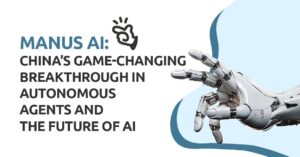AI Agents: Desired by All, Comprehended by Few

A New Era of Business Technology
As we step into 2025, artificial intelligence (AI) agents are emerging as a key trend in the business technology landscape. Major companies are in fierce competition to create tools that could significantly change how organizations function. But amidst all the excitement, a crucial question lingers: What exactly constitutes an AI agent?
Picture a technology that can negotiate contracts, forecast supply chain disruptions, and handle customer complaints—all without the need for human intervention. This scenario isn’t fiction; AI agents are already implementing these tasks, altering business strategies at a pace that is surprising even the most optimistic tech advocates.
OpenAI’s new API and SDK represent more than just an enhancement—they mark a turning point in efficiency. This suite of tools enables businesses to deploy AI agents capable of searching through internal databases, navigating websites, and executing workflows with remarkable accuracy. As a result, traditional scripted chatbots and rigid automation may soon become outdated.
The potential influence of AI on businesses could be significant. Companies that integrated AI technologies in 2024 experienced 1.5 times greater revenue growth. AI agents are set to extend these benefits further. For instance, in customer service, advanced conversational agents that utilize natural language processing can manage intricate customer inquiries. A notable example is Bank of America’s virtual assistant, Erica, which effectively handles over 1.5 billion customer interactions.
However, this rapid advancement also highlights a significant dilemma. The very companies investing millions into AI agents cannot seem to agree on what the term actually means. Are these agents meant to be autonomous decision-makers, advanced workflow tools, or something entirely different?
The clarity of this definition may determine which businesses lead the pack in the coming years and which ones fall behind.
The Definition Challenge
Despite the excitement surrounding AI, a considerable hurdle remains: there is no universal agreement on the definition of an AI agent. Influential figures like Sam Altman of OpenAI, Satya Nadella of Microsoft, and Marc Benioff of Salesforce are making ambitious forecasts about AI agents becoming “the leading providers of digital labor.” In a recent discussion at the World Economic Forum 2025, Benioff highlighted that today’s CEOs might be the last to manage all-human teams as businesses increasingly shift toward artificial intelligence.
The push for AI adoption from industry giants is evident, driven by their financial interests. But one must ask how much of this enthusiasm reflects genuine industry dynamics versus a marketing strategy pushed by big corporations.
As one expert pointed out, the concepts behind AI “agents” used to hold technical significance; however, over the past year, major companies have started to adopt these terms in various marketing campaigns. This lack of clarity presents both opportunities and challenges for businesses. While it allows for customization of AI solutions, it can also create discrepancies in expectations and make determining ROI more complex.
Given the tech industry’s history, it seems unlikely that a singular definition will emerge any time soon, if ever. This definitional confusion is reminiscent of previous technological terms that became diluted through misinterpretation and overuse.
Real-World Applications of AI Agents
Despite the confusion regarding definitions, companies are finding tangible ways to implement AI technologies. AI agents can take on labor-intensive data-related tasks within minutes, produce high-quality content, and provide more value from meetings. These agents typically function in three phases: they perceive their environment using models such as natural language processing, apply algorithms to make decisions, and continually learn to enhance their capabilities over time.
Some firms are already witnessing positive outcomes. For instance, ServiceNow reported that 80% of its customer support issues are now resolved without human input, thanks to analytical and generative AI handling routine inquiries. When human agents do need to engage, the use of AI has cut the time required for handling complex problems by 52% within two weeks.
As businesses work through this changing landscape, one key challenge will be distinguishing between practical applications and marketing exaggerations. Although 2025 may not bring about the fully autonomous AI workforce that some tech enthusiasts predict, organizations that establish clear internal definitions and implement strategic plans for AI agents could gain a substantial edge as technology continues to evolve.






